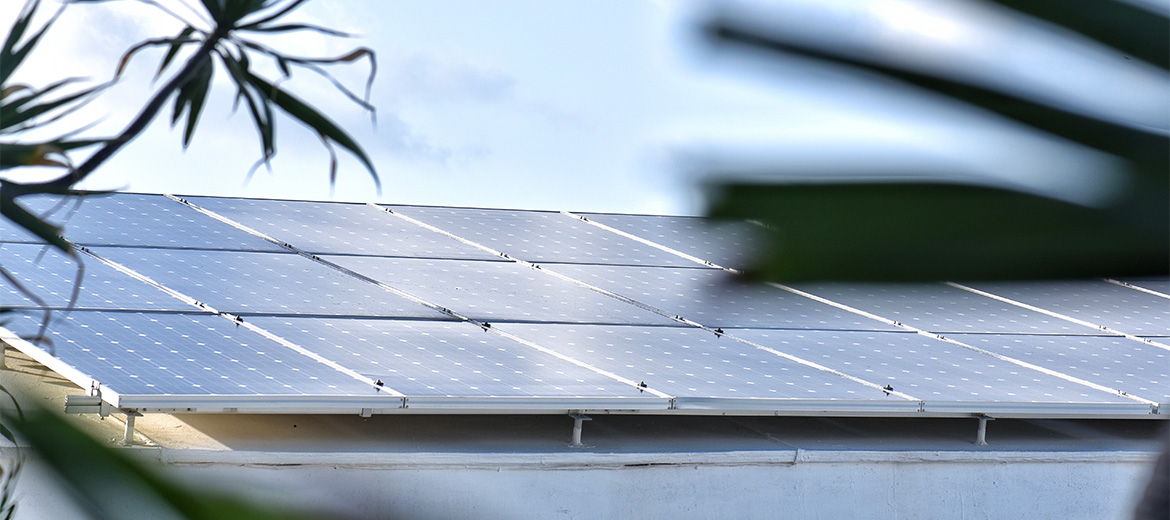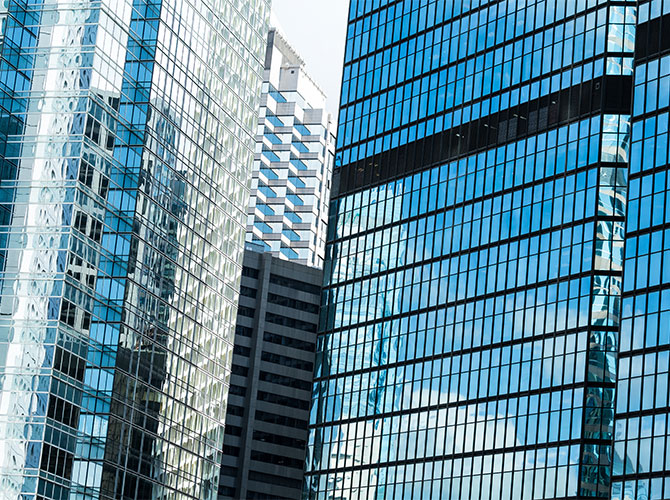Sustainability in Hospitality

Bringing the industry forward
In today's world, sustainability has become a pressing concern across various industries, including hospitality. As the hotel business strives to reduce its environmental impact, technology plays a pivotal role in driving sustainable practices. This article explores how technological advancements can empower hotels to incorporate sustainability into their operations, ultimately benefiting both the environment and their bottom line.
Energy Management Systems
One of the key areas where technology can make a significant impact is in energy management. Smart energy management systems allow hotels to monitor, control, and optimize energy consumption. Automated controls for lighting, heating, ventilation, and air conditioning (HVAC) ensure that energy is used efficiently. Additionally, occupancy sensors can adjust energy usage based on room occupancy, further reducing wastage. By implementing these systems, hotels can significantly decrease their carbon footprint and achieve substantial cost savings through reduced energy bills.
IoT-enabled Sustainability
The Internet of Things (IoT) has revolutionized the way hotels operate sustainably. IoT-enabled devices and sensors can collect data on energy usage, water consumption, and waste management in real-time. This data provides valuable insights for identifying areas of inefficiency and implementing targeted sustainability measures. For example, smart thermostats can regulate temperature based on guest occupancy, optimizing energy consumption. Similarly, smart meters can track water usage and detect leaks promptly, preventing wastage. By leveraging IoT technology, hotels can enhance their sustainability efforts while improving operational efficiency.
Digital Guest Experience
Technology also plays a role in enhancing the guest experience while promoting sustainability. Mobile apps and in-room tablets can replace traditional paper-based systems, reducing paper waste. Digital guest communication platforms allow for seamless interactions and personalized services, minimizing the need for printed materials. Furthermore, guests can use mobile apps to control lighting and temperature in their rooms, encouraging responsible energy usage. By embracing digital solutions, hotels not only enhance guest satisfaction but also reduce their environmental impact.
Waste Management and Recycling
Effective waste management is crucial for sustainable hotel operations. Technology can facilitate efficient waste sorting, recycling, and disposal processes. Smart bins equipped with sensors can monitor waste levels, optimizing collection routes and reducing unnecessary trips. Hotels can also implement waste tracking systems to monitor the types and quantities of waste generated, identifying areas for improvement. Furthermore, technology can aid in establishing partnerships with local recycling facilities, ensuring that waste is diverted from landfills. By leveraging technology for waste management, hotels can contribute to a circular economy and minimize their environmental footprint.
Data Analytics and Sustainability Reporting
Data analytics tools enable hotels to track and measure their sustainability initiatives effectively. By analyzing data on energy consumption, water usage, waste generation, and carbon emissions, hotels can identify trends, set benchmarks, and establish sustainability goals. Furthermore, data-driven insights can guide decision-making, allowing hotels to prioritize investments in sustainable practices that deliver the greatest impact. Additionally, sustainability reporting platforms can streamline the process of reporting key metrics to stakeholders, showcasing the hotel's commitment to sustainability and attracting eco-conscious guests.


Embracing Renewable Energy
Implementing solar power systems in hotels can make a huge difference to the environment. Hotels can install solar panels on their rooftops or open spaces to harness the power of the sun and generate clean electricity. This shift to renewable energy not only reduces the hotel's carbon footprint but also contributes to cost savings in the long run. By embracing solar energy, hotels can build a strong reputation as environmentally conscious establishments while simultaneously cutting down operational expenses. The success story of the La Quinta Inn & Suites in Danbury, Connecticut, serves as an inspiring example, as their installation of 400 solar panels resulted in significant monthly energy bill savings and income from selling excess electricity back to the grid.
The benefits of a sustainable business model are beyond compare to any other form of forward-thinking business endeavor. Here’s a few ideas why:
• Enhancing Brand Image
Embracing sustainability practices can improve the hotel's brand image and appeal to environmentally conscious travelers, leading to increased customer loyalty and positive word-of-mouth.
• Cost Savings
Implementing sustainable initiatives such as energy-efficient lighting, water conservation measures, and waste management systems can significantly reduce operational costs, resulting in long-term financial savings for the hotel.
• Competitive Advantage
Being at the forefront of sustainability in the hotel industry gives a competitive edge, attracting environmentally conscious guests and corporate clients who prioritize sustainable practices in their decision-making process.
• Regulatory Compliance
With increasing environmental regulations and policies, adopting sustainable practices ensures compliance with legal requirements, avoiding penalties and reputational damage.
• Futureproofing
By investing in renewable energy sources, such as solar power, hotels can future proof their operations against rising energy costs and potential energy supply disruptions, ensuring long-term sustainability and resilience.
• Positive Community Impact
Sustainable practices benefit local communities by conserving resources, reducing pollution, and supporting local economies, thereby fostering positive relationships with stakeholders and gaining community support.
Technology has become a powerful ally in the quest for sustainability in the hotel business. From energy management systems to IoT-enabled solutions, digital guest experiences to waste management tools, and data analytics to sustainability reporting, technology empowers hotels to integrate sustainable practices into their operations. By embracing these advancements, hotels can reduce their environmental footprint, enhance guest experiences, and contribute to a more sustainable future.
The Hotel of the Future
Welcome to the hotel of the future! As technology continues to advance, the hospitality industry is embracing new experiences and opportunities to provide guests with unforgettable stays. From cutting-edge innovations to upgraded reception services, hotels are evolving to meet the changing expectations of modern travelers. In this article, we will explore the exciting trends shaping the hotel of the future and how these advancements are revolutionizing the guest experience.

